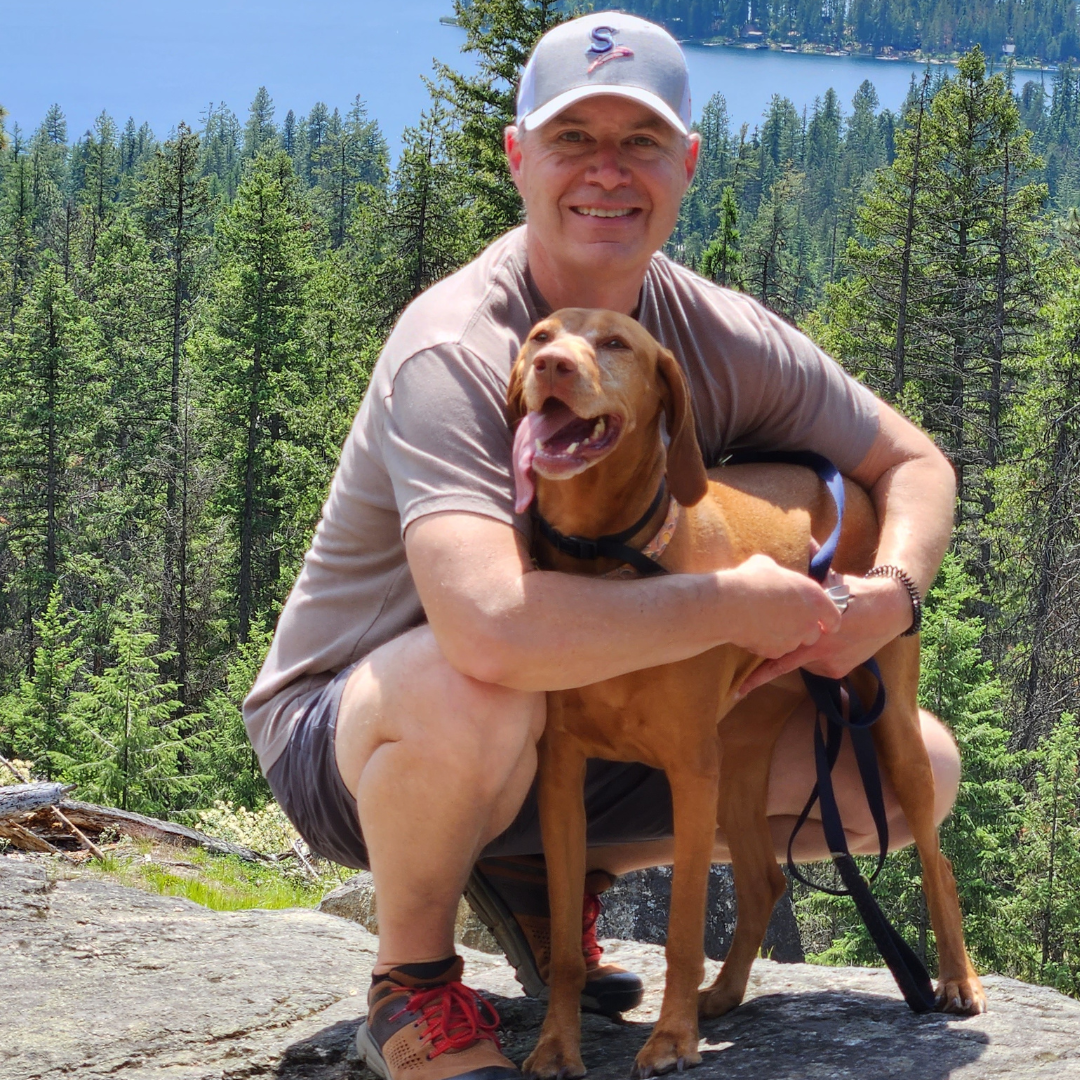Couldn't load pickup availability
The Ride-Along (#5) - paperback
The Ride-Along (#5) - paperback
book 5 in the Charlie-316 Series
The Tyler Garrett scandal rocked the Spokane Police Department two years ago. Now, a consent decree governs the agency with Washington D.C. directing its reform. It’s a tumultuous time in the city, and public outcry over local and national events is high.
Change is in the air.
Officer Lee Salter is a third-generation cop who bleeds blue. Amid the departmental chaos, he does the only thing he can—be a good officer. That means showing up for every shift, responding to calls for service, and always doing the right thing. All the while, the Department of Justice and its local supporters hope to catch another officer in its net of reform.
Salter refuses to be that officer.
Melody Weaver is a teacher and activist who believes in a better way. Despite her demanding profession, she dedicates herself to the cause of reshaping policing in her city so that the terrible events—both local and national—can stop. To understand what needs to change, she needs to see the reality of the job up close.
That means a ride-along on the graveyard shift.
One night.
Two people.
And a nation’s problems.



Read a Sample
The Ride-Along (#5) - paperback
Chapter 1
Officer Lee Salter rapped on the frame of the open office door. “You wanted to see me, Sarge?”
Sergeant Jamie Gelabert leaned back from her computer to look sideways at him. She waved him inside. Her short brown hair was slightly mussed as if she’d just run her fingers through it. “Shut the door.”
Lee did as he was told, racking his brain to think why he was getting called into the sergeant’s office, or what anyone could possibly be upset with him about. He came up empty, but that didn’t mean trouble wasn’t still waiting for him. It was the nature of the job these days.
Gelabert seemed to sense his trepidation. “Relax. It’s not bad.” Then, after a moment, she added, “Well, not exactly.”
Lee cocked his head slightly, unsure what to make of that. He waited dutifully for the sergeant to continue.
Gelabert spun in her chair to face him directly. “You’ve got a rider tonight.”
“I had one last week. One of the mayor’s executive assistants—some woman named Jean.”
“I know. It’s not your turn in the rotation yet, but I need you on this one, Lee.”
“Why?”
Gelabert rested her elbow on the desk. “You know the chief is trying to open things up, right? With all that’s going on, he’s trying to make the department more transparent to the public.”
All that’s going on. What an understated euphemism. The policing world was essentially on fire these days, more so than he’d ever seen in his fourteen-year career. Like always, some of the uproar centered on national incidents that somehow still had local repercussions.
But lately, Spokane had endured its share of controversial events as well.
“You mean Garrett?” Lee said. “It’s like we can’t shake that stink.”
Even though it happened more than two years ago, the community still reeled from the dark events surrounding the Tyler Garrett scandal. Garrett, a former police officer, was now serving a long prison sentence for murder. Chief Baumgartner had done everything he could to distance the department from him, but those efforts proved futile—the public remembered. It didn’t help that, throughout Garrett’s career, SPD featured him extensively in a public relations role. He’d literally been the poster child for the department. So when he broke bad, the connection was hard to sever in the public’s mind.
Sergeant Gelabert crossed her arms. “I get the feeling the new mayor doesn’t want us to be rid of that stink. Not till she’s put her stamp on it anyway.”
The new mayor, Margaret Patterson, had positioned herself as the one who would “clean up” the agency and “make it ours again.” She embraced the ongoing consent decree with the Department of Justice and praised DOJ’s efforts to “bring the police department’s culture in line with today’s values.”
Needless to say, the mayor wasn’t popular among those who wore the badge—Lee among them.
“It doesn’t hurt her brand,” Lee said, “or make it harder to bargain with the union, either.”
Gelabert puffed out her cheeks. “Best to stay out of politics when you can, Lee.”
“I’d be happy to, if politics would stay out of my job.”
She smiled thinly. “Fair point. But the chief is on board with this mission of transparency, so we’re the ones who get to carry it out.”
“I saw something about the transparency thing on the news,” he said. “And Mundy had a councilman ride with him a couple of weeks ago, too.”
Gelabert frowned. “Monday Mundy,” she muttered. “That wouldn’t have been my choice.”
Lee didn’t have to ask why. The perennially dour officer hadn’t seemed like a great candidate to him either.
“Anyway,” Gelabert said, “that’s where things started. After all the council members and the mayor’s executive staff rotate through, it’ll open up wide to the public. No matter how you cut it, we’re going to see a lot more ride-alongs than we’re used to.”
Lee reluctantly nodded, then he ventured, “Is there any way you can get someone else for this one?”
“I can’t. This is important, Lee. I need you to take this one out, even though it’s not your turn.”
“Why me?”
“You’re a Salter. That name still has some recognition.”
“Only to other cops. What’s the real reason?”
Gelabert took a deep breath and let it out in a slow exhale. “This one isn’t exactly a friendly.”
“How so?”
“She’s a member of the PRI.”
Lee stared at the sergeant, processing the information. The Police Reform Initiative was a citizen organization that had been overly critical of the police department for years. Up until the last few years, Lee had equated their presence to a bothersome mosquito—noticeable and annoying but not life-threatening. More recently, though, events on the national stage rippled into their own community, and local scandals propelled the committee’s profile significantly higher. Now the PRI was the leading voice in the call for radical reform of the Spokane Police Department.
After a few moments, Lee found his voice. “Is it what’s-his-name? Their chairman?”
Sergeant Gelabert shook her head. “She’s a board member. Melody Weaver.”
“Know anything about her?”
“No.”
“Why is she even here? The PRI hates us.”
“She’s here because she can be. Council President Cody Lofton gave her his slot.”
Lee snorted. Lofton was a wolf in sheep’s clothing. A couple years back, many on the department thought he backed the blue. But now he was seen as the most anti-police member of the city council. Lee couldn’t imagine the arrogant man spending ten minutes in a patrol car, much less a ten-hour shift, so this move didn’t surprise him.
“Supposedly,” Gelabert continued, “Lofton said he already knew everything he needed to know about the police department. So he sent a representative instead.”
“Perfect,” Lee muttered.
The sergeant fixed him with a meaningful look. “I probably don’t need to tell you that the chief has an eye on this one.”
“I bet.”
“The mayor, too.”
Lee rolled his eyes.
Gelabert leaned forward and rested her elbows on her knees. Her gaze held his. “I need to know I can count on you to do the right thing out there, Lee.”
“Of course,” he answered automatically.
“Good. And fair warning—she’s expecting a female officer.”
A spark of hope flared in him. “Then give her one.”
Gelabert smiled indulgently. “I would if I could. Between maternity leave, the flu, scheduled vacations, and days off, you’re the closest thing I’ve got.”
“To a female officer? What the hell does that mean?”
“Easy, tiger. It means that you can talk to people.”
Lee didn’t like the answer, so he looked away and studied a Human Resources poster pinned to the wall. Its message was to encourage employees to come forward with reports of hostile work conditions. Lee smirked. His whole job was a hostile environment. “Can’t she reschedule?”
“No.” Gelabert’s firm tone signaled the end of the meeting, so Lee turned slightly and put his hand on the doorknob. He paused and looked back at the sergeant. She was already at work on the paperwork in front of her. “Sarge?”
“Yes?” she answered, without looking up.
“What does that mean, do the right thing? What do you want me to do different? Put on a show or something?”
“Do what you normally do. Show her what patrol is really like.”
“That’s it?”
The sergeant looked up then. “That’s why I picked you for this detail.”
“All right.”
“Maybe keep her away from any drama, huh?”
“On patrol? That’s impossible.”
“You know what I mean. Just work your shift.” She motioned with her hand. “She’s waiting at the west doors.”
Lee nodded slowly.
Just work my shift. Sure.
“All right,” he said, and turned to go.
“Lee?”
He glanced back toward the sergeant.
“Good luck,” she said.
She didn’t add that he’d need it, but Lee took her meaning all the same.

Meet the Author
Colin Conway writes in multiple crime fiction genres including cozy mysteries, police procedural, private detective, amateur sleuth, and thriller. He’s published over thirty books in a variety of series.
If you're a fan of crime fiction novels, we'll have something you'll like.
Colin's love for crime fiction started while serving in the U.S. Army. That’s when he discovered authors likes Lawrence Block, Andrew Vachss, and John D. MacDonald. Colin’s interest in writing developed while working as a police officer in Spokane, Washington.
His creative secret is Rose the Office Dog, his constant companion.



